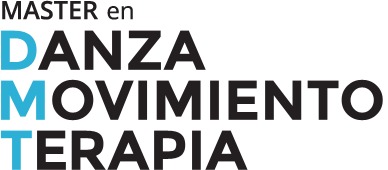More than 500 students
trained in the Master in DMT
OBJECTIVES
- To train graduates in psychology, psychopedagogy, pedagogy, and medicine. Graduates with other university degrees may also be admitted.
- In both cases, the candidate must complete an introductory session and a movement interview and an individual interview.
- This will provide the necessary knowledge to conduct research in the field of Dance Movement Therapy.
- This will contextualize the clinical practice of the Dance and Movement Psychotherapist within the psychotherapeutic theory that underpins it.
SPECIFIC COMPETENCES
- Understand the possibilities of structuring and organizing therapeutic spaces for different populations of children, adolescents, and adults, and design intervention possibilities using Dance Movement Therapy.
- Provide Dance Movement Therapy sessions and develop clinical cases under supervision.
- Gain basic knowledge of the different motion analysis systems.
- To develop the student’s emotional and empathic capacity to work with patients affected by serious disorders.
TRANSVERSAL COMPETENCES
- Develop skills to reflect on the content and process of one’s own therapeutic practice.
- Learning to work as a team.
- Know research possibilities and methods.
- Learn to diagnose and confront group phenomena.
Master owned by the UAB
120 ECTS
PLACES AVAILABLE min. 14 – max. 32
2 Academic Years
According to UAB regulations, only candidates with university studies corresponding to a degree, diploma or bachelor’s degree with an equivalent number of credits greater than or equal to 180 will be eligible.
2 academic years
The master’s degree is structured following this model
1st YEAR (60 ECTS)*
- Seven weekends, including theoretical, practical, and experiential classes and supervision: Friday (9:00 a.m. to 8:00 p.m.), Saturday (9:00 a.m. to 7:00 p.m.), and Sunday (9:00 a.m. to 6:00 p.m.)
- Four intensive courses: Thursday (10:00 a.m. to 8:00 p.m.), Friday (9:00 a.m. to 8:00 p.m.), Saturday (9:00 a.m. to 7:00 p.m.), and Sunday (9:00 a.m. to 6:00 p.m.)
- 300 hours of annual practice (two days of clinical practice per week on Mondays, Tuesdays, and/or Wednesdays) between October and June
-
2nd YEAR (60 ECTS)*
- Seven weekends, including theoretical, practical, and experiential classes and supervision: Friday (9:00 a.m. to 8:00 p.m.), Saturday (9:00 a.m. to 7:00 p.m.), and Sunday (9:00 a.m. to 6:00 p.m.)
- Four intensive courses: Thursday (10:00 a.m. to 8:00 p.m.), Friday (9:00 a.m. to 8:00 p.m.), Saturday (9:00 a.m. to 7:00 p.m.), and Sunday (9:00 a.m. to 6:00 p.m.)
- 300 hours of annual practice (two days of clinical practice per week on Mondays, Tuesdays, and/or Wednesdays) between October and June
-
Download
Registration
Registration price for the 22nd edition 2025/27 total €9.000
Registration fees will be paid within the following timeframes:
- Pre-registration: €30.21 * (not included in the tuition fee)
- 2025/26 academic year: €5,400 ** (optional in two installments)
- 2026/27 academic year: €3,600 ** (optional in two installments)
IMPORTANT NOTES
* The pre-registration fee is €30.21. This is a non-refundable university fee. ** Payments can be split into the first and second academic years: €5,400 before 10/6/25 and €3,600 before 10/15/26. NOTE: Registration does not include the cost of the therapeutic process that the student must undergo during their training.
